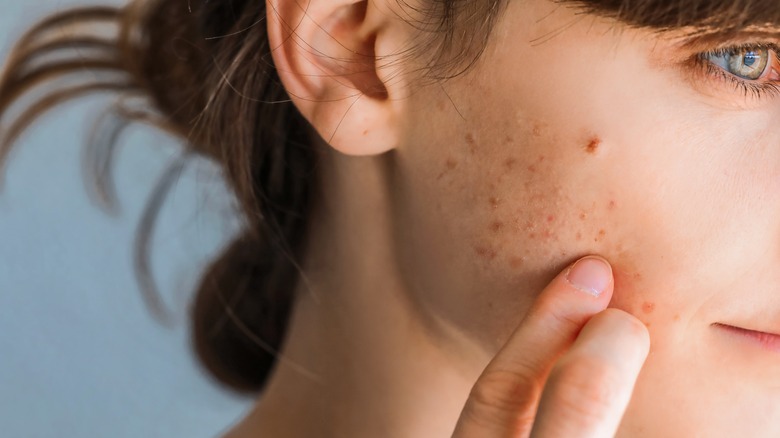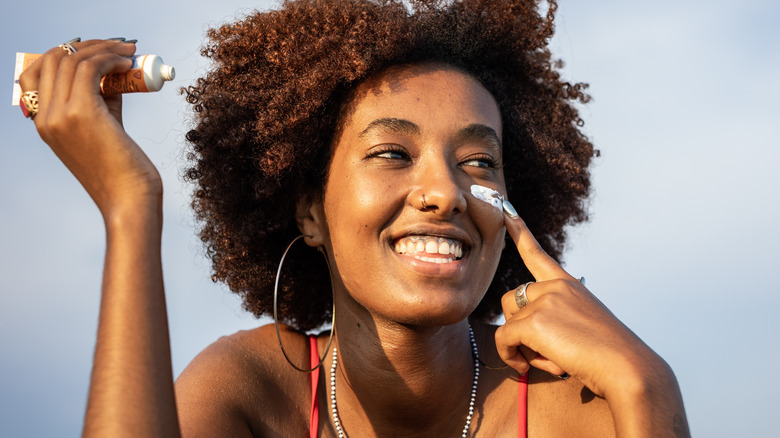How Does Air Pollution Affect Your Skin (And How Can You Fight Against It)?
Air quality is on people's minds, and rightly so — pollution, auto exhaust, and raging fires all affect the air we breathe and how we feel. But one impact we may not have considered is what air pollution does to our skin. The good news is there are steps we can take to minimize its effects.
Skin is the body's largest organ, and it's basically holding the whole show together. One of its main jobs is to be a barrier to keep the inside world of our bodies protected from external elements. But pollutants have upped their game, and now it's our job to be more vigilant in our daily cleansing and prep rituals. There's a new normal.
No matter where in the world you live, including countries that are predominantly overcast, our number one recommendation is to wear sunscreen every time you step outside. Sunscreen is an extra barrier to minimize damage from the sun — and you'll need more than sunscreen in your arsenal this summer to protect against UV rays.
The effects of air pollution on the skin
If you've ever been downwind of a serious fire, your visibility would be impaired as well as your breathing — smoke inhalation is damaging and under those conditions, it's best to stay indoors. But in the bigger picture, auto, plane, factory, and manufacturing exhaust are the more common daily pollutants.
Pollution dehydrates the skin and can bring out premature signs of aging. It can worsen inflammatory conditions like eczema, psoriasis, and acne and hives can increase in volume and frequency. This is the first time in history that we've had to deal with this level of pollution, and Dermatologist Dr. Adam Mamelak shared with Healthline that these pollutants can penetrate the barrier our skin is supposed to provide, affecting us as if we had directly inhaled them.
Pollutants aside for a moment, our bodies normally produce free radicals. They attack a large variety of molecules in the body, but our bodies also produce antioxidants to counterbalance the free radicals, preventing their damage. However, pollution depletes our antioxidants, causing an imbalance. With free radicals running wild and fewer antioxidants to reduce damage, the result is inflammation and a compromised skin barrier.
How you can fight against pollution
As usual, buyers beware when it comes to the marketing language urging us to buy products, including, for instance, anything labeled as "anti-pollution" skincare. While it may have real benefits, anti-pollution is an unofficial, unregulated term and it could mean any ingredient in any amount. So look for products with helpful individual ingredients and choose accordingly.
We are resilient, adaptive creatures. And it's important to be proactive and consider adding a few steps to your daily routine to make sure you're giving yourself optimal protection. Although there's a long list, the top fantastic antioxidant ingredients to add to your skincare regimen are vitamin C, retinol (which is vitamin A), vitamin E, and polyphenols.
Dermatologist Dr. Kellie Reed recommends barrier-plumping moisturizers containing ceramides and hyaluronic acid. It's worth restating the obvious — slather your face and exposed skin with an effective sunscreen. As dermatologist Dr. Joshua Zeichner strongly recommended to InStyle, Eucerin Sun Age Defense SPF 50 is a great sunscreen option because it contains vitamin C (plus other antioxidants) and hyaluronic acid. Suit up with a large hat, shades, and drink plenty of water for inner hydration. We're skipping sun damage this year so we put together a guide for self-tan types. Still, remember to use sunscreen after you fake tan.


